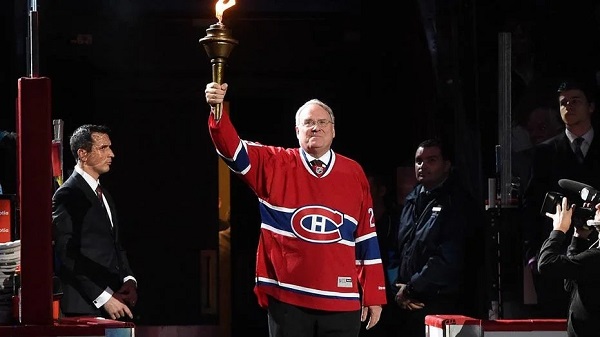Frontier Centre for Public Policy
Moscow attack highlights need for secure borders
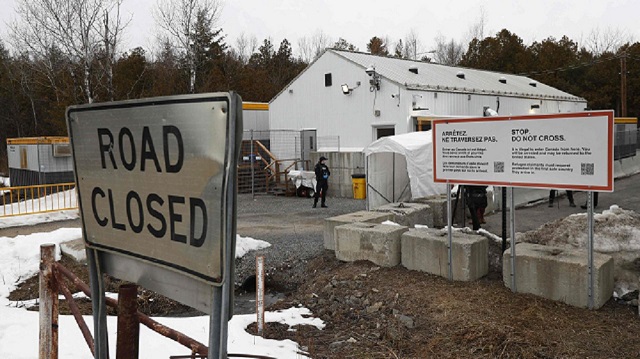
From the Frontier Centre for Public Policy
Are candid questions about border security and immigration really semi-racist, or are they legitimate self protection? Are questions about unchecked people entering our countries from parts of the world where Islamists have great influence “Islamophobia”, or are such questions perfectly understandable given the Islamist-inspired attacks that occur with regularity around the globe?
The shocking terrorist attack that took place on March 22, 2024 near Moscow is still reverberating around the globe. Exactly who was responsible for the attack and why it happened is not completely clear. One of the many Islamist terrorist factions, IS Khorason Province, has taken “credit” for the bloody massacre, but the details are murky. To add to the murk the videos that have emerged showing large powerful shooters that some say stand in stark contrast to the videos showing smaller and less robust Tajik suspects confessing to being the shooters. So, conspiracy theories are flying.
Meanwhile, Vladimir Putin seems intent on trying to blame Ukraine, but that is entirely predictable. Everything Putin says is now taken with a grain of salt by the international community. Ukraine does not appear to be connected. What is known is that Putin was warned recently by the U.S. that exactly such an attack was in the works, but angrily blew off the warning as American propaganda. How Russians will react to this information -or even if they will find out about it – is not known. We don’t know much more than that at this time. Hopefully the details will become clearer with the passage of time.
However, two facts about the incident that do appear to be reasonably certain are that the perpetrators were not Russians, and that the attack was related to an Islamist terror group that hates Russia – and apparently everyone else that does not share their philosophy.
That definitely includes Canada. Should we worry about such an attack taking place here?
At one time the answer would be “probably not”. Canada was a nation with a sophisticated, well-regulated immigration system that weeded out potential terrorists, and tightly controlled borders. A dangerous person might still get in, but chances are that even if he did his movements would be monitored, and he would be stopped before committing an atrocity. But not anymore.
This all changed when Justin Trudeau became prime minister in 2015. Canadians were mystified when he told the New York Times that Canada was a “post national state”. What did he mean?
What he meant began to become clear when he sent out his famous January, 2017 tweet basically inviting any global resident who cared to come to Canada – no questions asked.
“To those fleeing persecution, terror & war, Canadians will welcome you, regardless of your faith. Diversity is our strength #WelcomeToCanada,’
And thousands did. Roxham Road became internationally famous as a pleasant lane where any global resident with the wherewithal to fly to the United States could get a cab to Roxham Road, and simply walk into Canada. They would then agree to show up at an immigration hearing they had no intention of attending. And that would be it. They would stay as long as they liked.
Canadians began to understand the implications of being a “post-national state”. Because does such an entity as a “post-national state” even need borders, border guards, border security – or even an army, for that matter? Aren’t concerns about terrorists getting into your country rather silly now if Canada had apparently evolved past that outdated “nation state” stage? And why even be concerned with how many people were entering the country if borders weren’t really relevant any longer?
So people came. Anyone who raised questions about this radical new philosophy was branded as something akin to a racist or white supremacist. Or, worst of all – “like Donald Trump”, who had famously questioned the wisdom of allowing free entry into the U.S. of people from countries where Islamist philosophy prevails.
This worked. The Conservatives were thoroughly intimidated. So they basically remained silent, while millions of immigrants and foreign “students” flooded into the country, with little in the way of background checks.
In recent years the number of people coming into Canada as asylum seekers, foreign students, or immigrants in other categories has been astounding. Last year alone, Canada had an additional 550,000 immigrants, but more than 1,000,000 foreign students.
These are staggering numbers. Most of these people are probably peaceful and productive people. But how many of them are not? How many of the million “students”, for example, might have ties to the same Islamic terrorist group that terrorized Moscow?
The fact is that we don’t know. The numbers coming in are too great. They are coming in too fast. And they are not being properly checked. The frightening reality is that if even a tiny fraction of these virtually unchecked people are terrorists Canada could see tragedy unfold any day of the week.
Many of these foreign students appear to be involved in the lawless and shockingly antisemitic protests, now occurring daily in public places, and even in Jewish neighborhoods – sometimes directly in front of synagogues! In January, 2024 National Post commented on this frightening phenomenon:
“In recent months, we have witnessed a critical mass of antisemitic Canadians willing to vandalize Jewish businesses, protest relentlessly for a Palestinian nation-state “from the river to the sea” and even threaten police officers with death.”
The Post notes that most of the most violent protests appear to involve new immigrants and foreign students from Muslim nations. It would be a slur on these people to suggest that they are tied to an Islamist terrorist group, like the IS-K group claiming responsibility for the deadly rampage in Moscow. And yet, Canadians who are witnessing this alarming antisemitism have a right to know with whom they are sharing their country. That is the right of every citizen.
Our neighbours to the south are worried about terrorism as well. Millions of unchecked migrants have simply walked into Texas, Arizona and California since 2020. If even a tiny fraction of these unchecked migrants are terrorists there will be major trouble ahead. Recently, Christopher Wray, Director of the Federal Bureau of Investigation (FBI) has warned about the likelihood of a terror attack occurring because of these lax or completely absent border controls.
Britain, and all of Europe are also beginning to realize that the almost unrestricted, and unregulated immigration into their countries is placing them at great risk. Because of these understandable concerns the unwritten taboo about citizens asking candid questions about the backgrounds of newcomers to their countries is starting to break down. Simply put, people don’t want terrorists entering their countries.
That includes citizens of Russia. We don’t know how events will play out in Moscow. Is this just the first of many similar attacks in Moscow and elsewhere, or is it just a one-off?
But perhaps it will get us all thinking more clearly. Are candid questions about border security and immigration really semi-racist, or are they legitimate self protection? Are questions about unchecked people entering our countries from parts of the world where Islamists have great influence “Islamophobia”, or are such questions perfectly understandable given the Islamist-inspired attacks that occur with regularity around the globe? Should we continue to write off any political party that dares ask these questions as “far-right” or “anti-immigrant” or should we listen to the questions that they raise and take these concerns seriously?
Ordinary citizens throughout the western world are starting to wake up and realize that it is not racist, or “far right”, to demand to know who is being let into our countries. We all want peaceful, productive immigrants who share our basic values. But we have the right to know that is who they are before we let them in. Who we allow into our country is of vital importance to us, and we should not be afraid to say so. We have a right to expect that our borders are secure.
Perhaps at some stage in human evolution borders will no longer be necessary, because we will all be living in some peaceful, post-national state. But until that glorious day comes, we need secure borders, and we need to have good information about anyone who wants to cross them.
Brian Giesbrecht, retired judge, is a Senior Fellow at the Frontier Centre for Public Policy
Frontier Centre for Public Policy
Every Child Matters, Except When It Comes To Proof In Kamloops
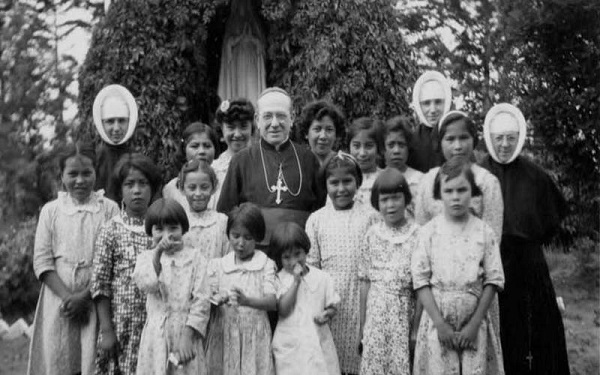
From the Frontier Centre for Public Policy
If murdered women justify landfill digs in Winnipeg, why hasn’t Kamloops lifted a shovel for its alleged 215 child graves—despite $12 million and four years of national mourning?
Winnipeg searched a landfill to honour Indigenous women, but Kamloops has yet to dig a few feet for its missing children
If Canadians are serious that every child matters, we should at least know the names of the “missing” Indian Residential Schools children about whom we hear almost daily in mainstream media reports.
There are frequent reports of news conferences staged by Indigenous band leaders proclaiming new ground-penetrating radar (GPR) “discoveries” of unmarked graves at former residential schools. GPR detects soil disturbances, but it cannot confirm whether they are human remains or even graves. The reality is that the small number of excavations which have occurred have yielded no human remains, despite stories of clandestine burials told by Indigenous knowledge keepers.
By contrast, in Winnipeg, excavations have been happening at landfills to search for the bodies of Indigenous women murdered by a serial killer. Yet after more than four years of gut-wrenching stories about the apple orchard at the former Kamloops Indian Residential School, not a single excavation has been carried out to confirm the alleged burial of more than 200 children.
On May 27, 2021, the Tk’emlúps te Secwépemc First Nation announced that radar had revealed anomalies consistent with possible graves near the former school. Following that announcement, many First Nations made similar claims based on GPR. Yet no band, including Kamloops, has identified a single missing child by name. Kamloops alone has received $12 million in federal funding for excavation work, but no digging has taken place, and no explanation has been given for the delay.
Are we serious? If murdered Indigenous women in Winnipeg matter enough to prompt landfill searches, why don’t the children allegedly buried at Kamloops matter enough for an excavation?
Sometimes it seems Canadians are far too willing to look away, even at the risk of being disingenuous. The Heather Stefanson government in Manitoba was defeated in the 2023 election, famously because it refused to search landfills for murdered Indigenous women. Yet the Kamloops allegation—one of the gravest ever levelled in Canadian history, involving the alleged murder and burial of more than 200 children—remains untested.
In the meantime, copycat “discoveries” have spread across the country, the media has fanned a moral panic at home and abroad, orange T-shirts have become a fixture, and schoolchildren are taught that allegations of murder, rape, mayhem and mass graves are fact. Orange Shirt Day and the phrase “Every Child Matters” became national symbols of reconciliation after the Kamloops announcement, further entrenching the narrative.
In Manitoba, Morgan Harris and Marcedes Myran, two Indigenous women murdered in Winnipeg, mattered. Their families and communities mattered. If First Nations in B.C. and elsewhere—and indeed all Canadians—truly believe every child matters, and if many still believe there are children buried at Kamloops, why are Canadians kept in the dark? Indigenous families in particular are being told, and teaching their children, that genocide explains the inequality—social, economic and otherwise—they endure today.
It’s tempting to blame governments for fuelling the panic or the mainstream media for refusing to ask basic questions. Yes, they bear responsibility. But the spark came from Kamloops, and only Kamloops can settle this. Its own GPR specialist recommended excavation. That would prove whether bodies exist, identify who the children were, and reconnect them to their families and communities.
Instead, Canadians are asked to accept the story on faith. After four years with no excavation and no names, credibility is stretched to the breaking point.
Consider the contrast: Manitoba Premier Wab Kinew says $18 million was spent to dig through thousands of tonnes of hazardous landfill to recover the remains of Morgan and Marcedes. Kamloops, with $12 million to dig just a few feet, has yet to act.
Something is wrong with this picture. Either compassion for Indigenous children is missing, or the “missing” children aren’t missing at all.
Where is that compassion Canadians love to think they possess?
Or is it simply not true that every child matters?
James C. McCrae is a former attorney general of Manitoba and Canadian citizenship judge.
Banks
Debanking Is Real, And It’s Coming For You
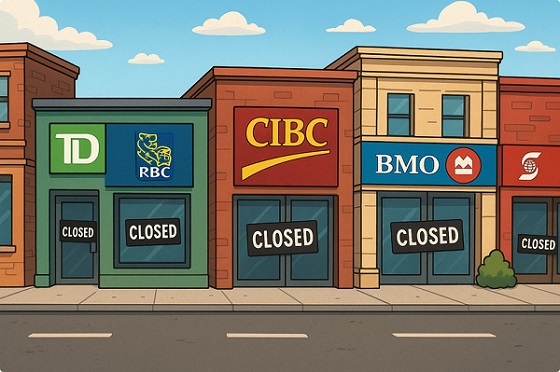
From the Frontier Centre for Public Policy
Marco Navarro-Genie warns that debanking is turning into Ottawa’s weapon of choice to silence dissent, and only the provinces can step in to protect Canadians.
Disagree with the establishment and you risk losing your bank account
What looked like a narrow, post-convoy overreach has morphed into something much broader—and far more disturbing. Debanking isn’t a policy misfire. It’s turning into a systemic method of silencing dissent—not just in Canada, but across the Western world.
Across Canada, the U.S. and the U.K., people are being cut off from basic financial services not because they’ve broken any laws, but because they hold views or support causes the establishment disfavors. When I contacted Eva Chipiuk after RBC quietly shut down her account, she confirmed what others had only whispered: this is happening to a lot of people.
This abusive form of financial blacklisting is deep, deliberate and dangerous. In the U.K., Nigel Farage, leader of Reform UK and no stranger to controversy, was debanked under the fig leaf of financial justification. Internal memos later revealed the real reason: he was deemed a reputational risk. Cue the backlash, and by 2025, the bank was forced into a settlement complete with an apology and compensation. But the message had already been sent.
That message didn’t stay confined to Britain. And let’s not pretend it’s just private institutions playing favourites. Even in Alberta—where one might hope for a little more institutional backbone—Tamara Lich was denied an appointment to open an account at ATB Financial. That’s Alberta’s own Crown bank. If you think provincial ownership protects citizens from political interference, think again.
Fortunately, not every institution has lost its nerve. Bow Valley Credit Union, a smaller but principled operation, has taken a clear stance: it won’t debank Albertans over their political views or affiliations. In an era of bureaucratic cowardice, Bow Valley is acting like a credit union should: protective of its members and refreshingly unapologetic about it.
South of the border, things are shifting. On Aug. 7, 2025, U.S. President Donald Trump signed an executive order titled “Guaranteeing Fair Banking for All Americans.” The order prohibits financial institutions from denying service based on political affiliation, religion or other lawful activity. It also instructs U.S. regulators to scrap the squishy concept of “reputational risk”—the bureaucratic smoke screen used to justify debanking—and mandates a review of past decisions. Cases involving ideological bias must now be referred to the Department of Justice.
This isn’t just paperwork. It’s a blunt declaration: access to banking is a civil right. From now on, in the U.S., politically motivated debanking comes with consequences.
Of course, it’s not perfect. Critics were quick to notice that the order conveniently omits platforms like PayPal and other payment processors—companies that have been quietly normalizing debanking for over a decade. These are the folks who love vague “acceptable use” policies and ideological red lines that shift with the political winds. Their absence from the order raises more than a few eyebrows.
And the same goes for another set of financial gatekeepers hiding in plain sight. Credit card networks like Visa, American Express and Mastercard have become powerful, unaccountable referees, denying service to individuals and organizations labelled “controversial” for reasons that often boil down to politics.
If these players aren’t explicitly reined in, banks might play by the new rules while the rest of the financial ecosystem keeps enforcing ideological conformity by other means.
If access to money is a civil right, then that right must be protected across the entire payments system—not just at your local branch.
While the U.S. is attempting to shield its citizens from ideological discrimination, there is a noticeable silence in Canada. Not a word of concern from the government benches—or the opposition. The political class is united, apparently, in its indifference.
If Ottawa won’t act, provinces must. That makes things especially urgent for Alberta and Saskatchewan. These are the provinces where dissent from Ottawa’s policies is most common—and where citizens are most likely to face politically motivated financial retaliation.
But they’re not powerless. Both provinces boast robust credit union systems. Alberta even owns ATB Financial, a Crown bank originally created to protect Albertans from central Canadian interference. But ownership without political will is just branding.
If Alberta and Saskatchewan are serious about defending civil liberties, they should act now. They can legislate protections that prohibit financial blacklisting based on political affiliation or lawful advocacy. They can require due process before any account is frozen. They can strip “reputational risk” from the rulebooks and make it clear to Ottawa: using banks to punish dissenters won’t fly here.
Because once governments—or corporations doing their bidding—can cut off your access to money for holding the wrong opinion, democracy isn’t just threatened.
It’s already broken.
Marco Navarro-Genie is vice-president of research at the Frontier Centre for Public Policy and co-author, with Barry Cooper, of Canada’s COVID: The Story of a Pandemic Moral Panic (2023).
-
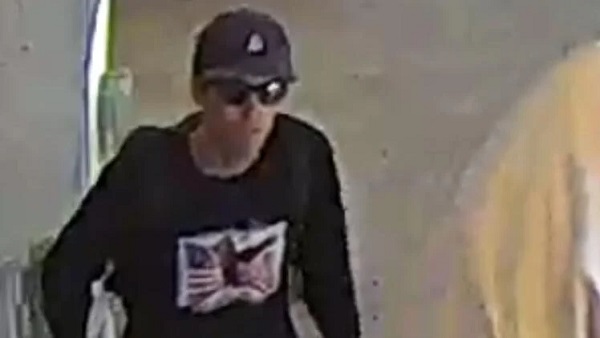
 Crime2 days ago
Crime2 days agoArrest made in Charlie Kirk assassination
-
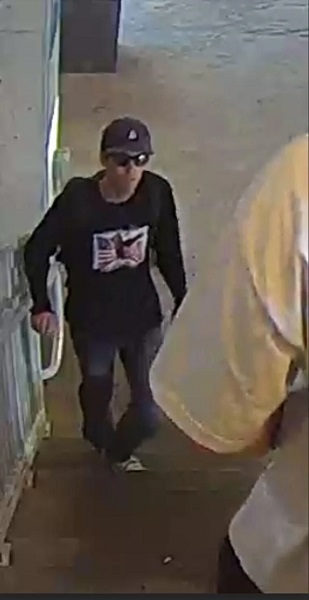
 International2 days ago
International2 days agoBreaking: ‘Catch This Fascist’: Radicalized Utah Suspect Arrested in Charlie Kirk Assassination, Officials Say
-

 Frontier Centre for Public Policy2 days ago
Frontier Centre for Public Policy2 days agoEvery Child Matters, Except When It Comes To Proof In Kamloops
-

 Crime2 days ago
Crime2 days ago“Hey fascist! Catch!”: Authorities confirm writing on alleged Kirk killer’s bullet casings
-
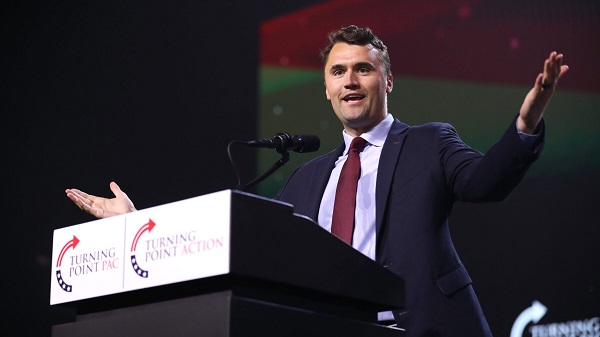
 J.D. Tuccille2 days ago
J.D. Tuccille2 days agoAfter Charlie Kirk’s Murder, Politicians Can Back Away From the Brink, or Make Matters Worse
-
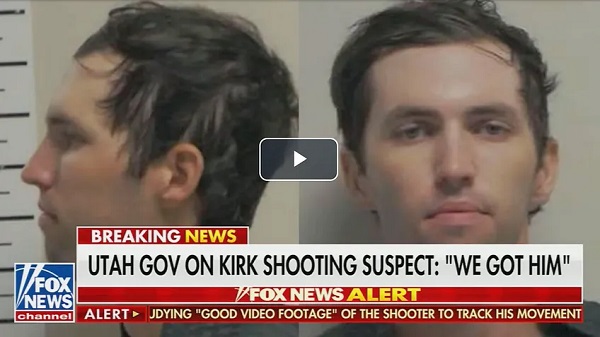
 International2 days ago
International2 days agoCharlie Kirk Shooting Suspect Revealed: Here’s What His Ammunition Said
-
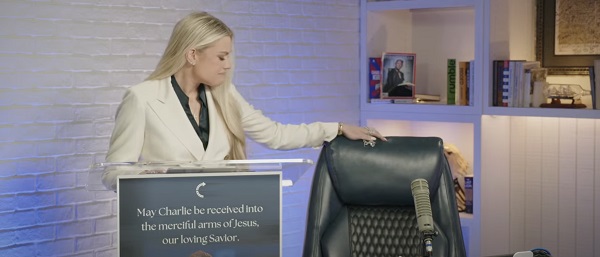
 Daily Caller1 day ago
Daily Caller1 day ago‘You Have No Idea What You Have Unleashed’: Erika Kirk Addresses Supporters For First Time Since Kirk’s Assassination
-
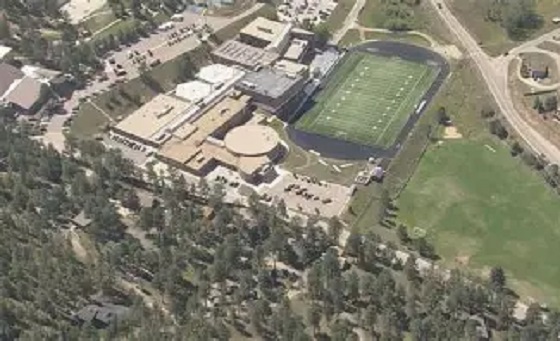
 Crime2 days ago
Crime2 days ago‘Radicalized’ shooter dead, two injured in wake of school shooting




